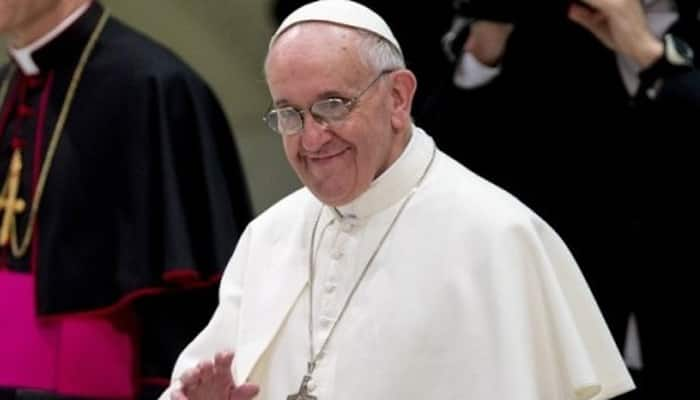Vatican City: Pope Francis heads to Armenia Friday for a three-day visit likely to inflame simmering tensions with Turkey over the Vatican`s description of mass killings under the Ottoman Empire as genocide.
Turkey reacted furiously last year when Francis, during a mass St Peter`s basilica, said that the massacres were "widely considered the first genocide of the 20th Century."
The same formulation had been employed by Pope John Paul II in 2001 in a written declaration.
Turkey reacted furiously to Francis`s comment. Ankara withdrew its ambassador from the Vatican in protest and relations remain deep frozen at a time when the Catholic church is preoccupied by the plight of Christians in the Middle East, an issue in which Turkey is a key player.
The Turkish government maintains that as many Turks as Armenians died in the latter stages of World War I as a result of civil strife triggered in part by Armenians siding with invading Russian troops.
Turkey has been further riled by Germany`s decision, approved by parliament earlier this month, to recognise the killings as genocide, and fresh diplomatic uproar is anticipated if the pontiff utters the word during his time in Armenia.
The Argentinian pope is due to visit Armenia`s main genocide memorial, the Tsitsernakaberd, on Saturday morning but is not scheduled to make a speech at the site, according to his official programme.
Francis will be the second pope to visit Armenia since it became an independent state following the collapse of the Soviet Union. Pope John Paul II went there in 2001.
The trip will also be the latest in a series of visits Francis has made to countries on the periphery of Europe where Catholics form a small minority of the population, following earlier trips to Albania and Bosnia.Armenia`s Christians mostly belong to the country`s indigenous church, which belongs to the orthodox family but dates its foundation to the time of the apostles, long before the schism between the Western and Eastern branches of Christianity.
Armenia was the first country to adopt Christianity as a state religion, doing so in 301.
Father Lwis Naamo, rector of the Armenian Pontifical College in Rome, said he expected Francis to use the term genocide during his trip.
"He is very clear, he tells it how it is," said the clerical academic, who is personally from a Syrian Christian background.
"In Armenia, when you say Armenian, that means Christian," he said. "The Armenian people believe in their resurrection after having gone through many Golgothas (Calvaries).
"Francis is our leader and he is coming to visit his children."
In the build-up to Francis`s visit, Vatican officials have notably declined to avoid using the term genocide.
"I cannot anticipate what the pope will say," spokesman Federico Lombardi responded tetchily when pressed on the issue.
The Vatican`s diplomatic service is anxious not to provoke Turkey any more, for fear of further endangering the position of Christians there and the many Christian refugees arriving from Syria and Iraq.
Now that a growing number of countries around the world have complied with Armenia`s request to regard the events of 1915-18 as genocide, the importance of figures like the pope using the term has diminished, according to Antranig Ayvazian, a history professor at Yerevan University.
"Medz Heghem (the Armenian term for the events) has the sense of a major slaughter aimed at the elimination of a people," he said.
"I understand the Holy See`s position, it has to be seen to be neutral. That is why it can help to promote peace and co-existence."
















